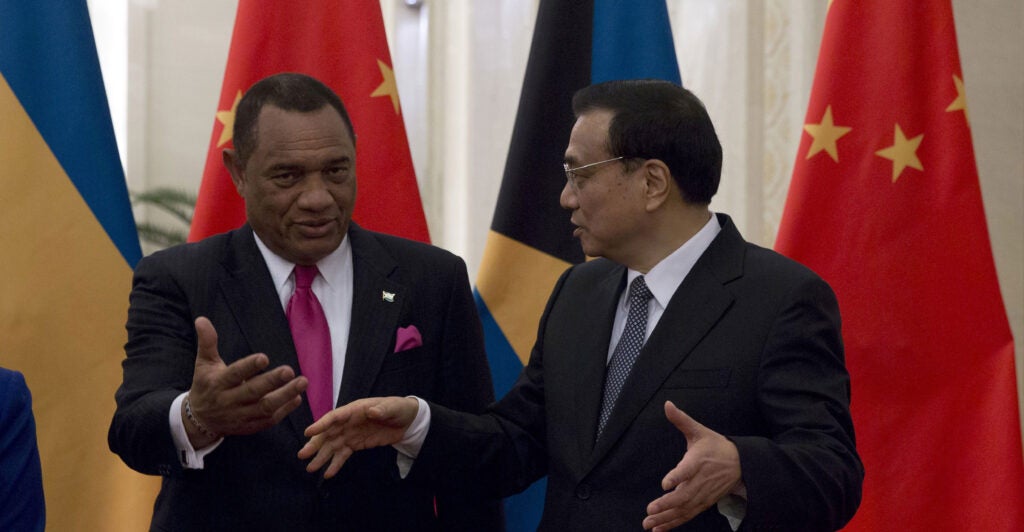More than 8.5 million American tourists visited the Bahamas in 2023.
The Caribbean nation offers pristine beaches, rich history, incredible water sports, delectable cuisine … and some very serious interest from the People’s Republic of China.
Chinese interest in the Bahamas recently made headlines after a hearing in which the commanders of U.S. Southern Command and U.S. Northern Command testified on the “aggressive” expansion of Chinese influence in the Caribbean.
Though the Bahamas have long held a close relationship with the United States, its recent crises have invited influence from other quarters.
Experts estimate that Hurricane Dorian cost the Bahamian economy around one-fourth of its national gross domestic product in 2019, equivalent to roughly $3.4 billion.
The dramatic decline in tourism during COVID-19 further crippled the island chain nation, leaving it particularly vulnerable to predatory Chinese influence. China was all too eager to step in.
Currently, bilateral trade between the Bahamas and China totals $492 million. Additionally, China holds investments in a variety of infrastructural projects, including the development of a $3 billion deep-water containment port, $54 million in loans for a four-lane highway project, $3 billion in loans for the Baha Mar Resort, and a $12 million agreement for infrastructure upgrades.
China’s aggressive Belt and Road Initiative extends well beyond the waters of the Bahamas. Ten Caribbean countries have signed on, including Cuba, Jamaica, the Dominican Republic, Antigua and Barbuda, Dominica, Barbados, Grenada, Trinidad and Tobago, Guyana, and Suriname.
China currently holds the third-largest share in the Caribbean Development Bank and has sponsored investments of more than $10 billion since 2005.
Increasing Chinese presence in the Caribbean could prove especially problematic for Taiwan, a key U.S. partner. The region is home to four of the just 13 countries that officially recognize Taiwan globally. Between South America and the Caribbean, nine countries have shifted recognition to China from Taiwan since 2016, reflecting China’s economic dominance in the region and the growing subversion of American influence.
The Bahamas, in addition to being a close trading partner of the United States and one of our closest neighbors, also plays host to the U.S. Navy’s Atlantic and Undersea Test and Evaluation Center, responsible for research, development, testing, and engineering of submarine warfare systems.
With the Caribbean as the primary means of maritime access to the southeastern United States, relationships with our Caribbean partners are a matter of national security. Increased cooperation with the Chinese Communist Party and further encroachments through its Belt and Road Initiative are unwelcome advancements for the region’s future.
China’s projection of power in the Bahamas undermines U.S. influence in the region, calls into question the information security of U.S. military operations in the region, and weakens Taiwan’s precarious international diplomatic position.
The United States must not take its position in the Caribbean for granted.
